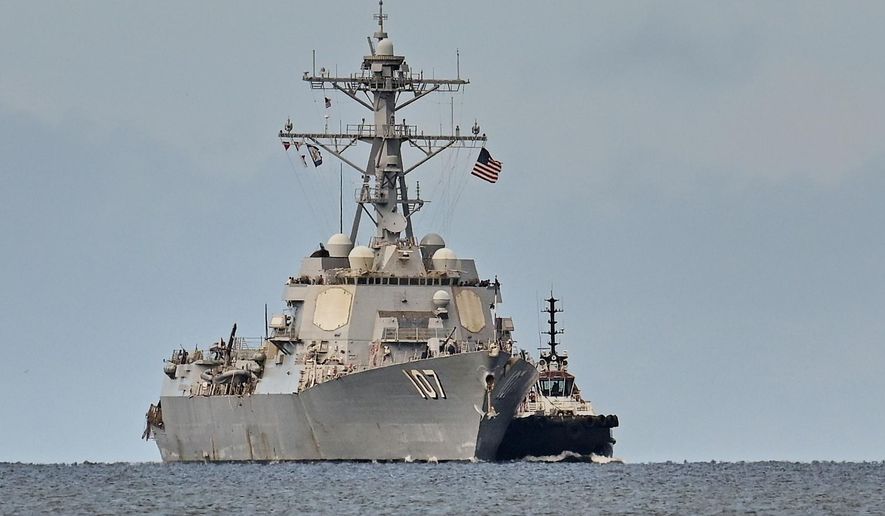A version of this story appeared in the daily Threat Status newsletter from The Washington Times. Click here to receive Threat Status delivered directly to your inbox each weekday.
A U.S. Navy destroyer docked Sunday at the capital of Trinidad and Tobago for what American officials said was a joint military exercise with the Caribbean nation.
But the arrival of the USS Gravely also marks the latest development in growing American pressure against Venezuela and its president, Nicolas Maduro.
U.S. Embassy Charge d’Affaires Jennifer Neidhart de Ortiz said the Arleigh Burke-class Aegis guided missile destroyer would remain in the region until Thursday.
“The partnership between the United States and Trinidad and Tobago exemplifies regional strength through collaboration,” Ms. Neidhart de Ortiz said in a statement. “Together, we address shared threats like transnational crime and build resilience through training, humanitarian missions, and security efforts.”
Venezuela’s government denounced the arrival of the USS Gravely, calling it a “hostile provocation against Venezuela and a serious threat to Caribbean peace.”
The 22nd U.S. Marine Expeditionary Unit, a Marine Corps air-ground task force comprising about 2,300 personnel, will train alongside troops from the Trinidad and Tobago Defense Force during the week.
“The U.S. military services’ presence in Trinidad and Tobago is part of the longstanding cooperation between the United States and Trinidad and Tobago,” U.S. Embassy officials in Port-of-Spain said in a statement. “Our cooperation ensures greater safety and stability across the Caribbean region.”
Venezuelan officials accused the U.S. of having ulterior motives with the deployment of the USS Gravely to Trinidad and Tobago.
“These are not ’defensive exercises.’ This is a colonial military aggression operation aimed at turning the Caribbean into a space for lethal violence and U.S. imperial domination,” officials in Caracas said.
On Friday, the Pentagon officials confirmed that the USS Gerald R. Ford Carrier Strike Group and its embarked air wing are deploying to the U.S. Southern Command region, which covers Central and South America, the Caribbean, and the Panama Canal.
The mission is in support of President Trump’s directive to “dismantle Transnational Criminal Organizations and counter narco-terrorism in support of the Homeland.”
“The enhanced U.S. force presence in the [U.S. Southern Command area] will bolster U.S. capacity to detect, monitor, and disrupt illicit actors and activities that compromise the safety and prosperity of the United States homeland and our security in the Western Hemisphere,” chief Pentagon spokesman Sean Parnell said in a statement. “These forces will enhance and augment existing capabilities to disrupt narcotics trafficking and degrade and dismantle [Transnational Criminal Organizations].”
Mr. Trump has accused Mr. Maduro of leading the organized crime gang Tren de Aragua. On Sunday, Venezuela said it captured a mercenary group aligned with the CIA that is preparing a false flag attack intended to provoke a full-scale confrontation with the U.S.
• Mike Glenn can be reached at mglenn@washingtontimes.com.




Please read our comment policy before commenting.